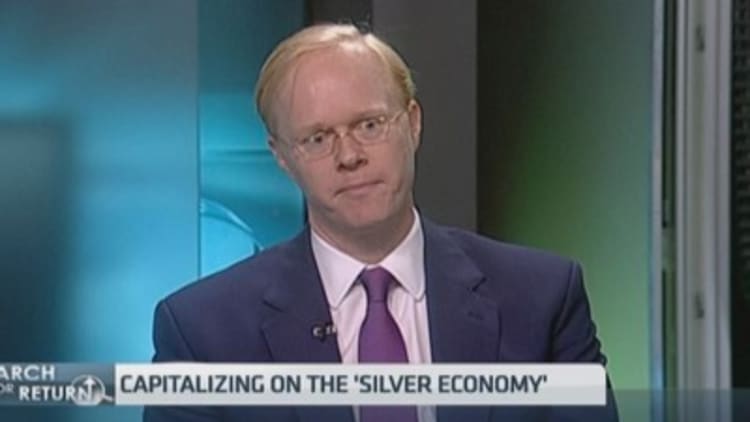There may not be any escaping the fact that we're all getting older, but the investment community is having to find new ways to make money from changes in longevity and the way we age.
The percentage of the global population aged 50-plus is projected to grow from 17.8 percent in 2000 to 33.5 percent in 2050, according to Bank of America Merrill Lynch.
The "longevity economy" is expected to account for more than half of U.S. economy by 2032, according to Oxford Economics.

It's not just the developed world that is aging either, although countries like Germany, Italy and Japan have particularly clear demographic challenges with low birth rates and rising life expectations. In China, the proportion of the population aged 60 and over was 12 percent in 2010, but that is expected to rise to 31 percent by 2050. In Brazil, the percentage of those aged 60-plus is expected to rise from 10 percent to 29 percent over the same period, according to Oxford Economics.
People are "saving towards retirement and then enjoying retirement," Johan Utterman, a fund manager at the Golden Age fund at Lombard Odier, which focuses on companies that profit from an ageing population, told CNBC.
Among the sectors set to benefit from an increasingly ageing population is the pharmaceutical industry – particularly those companies focused on chronic illnesses and diseases more common in the elderly, like cancer, cardiovascular disease, dementia and Alzheimer's, as well as caring for aging eyes, teeth and incontinence, are expected to benefit.
But investing in an aging population isn't just about keeping them healthy. There are also opportunities for consumer-facing companies like Harley Davidson and cruise operator Carnival, according to Utterman.
Today's over-50s are also likely to be more tech-savvy than previous generations. While there are a growing number of phones and tablets specifically targeted at this demographic, devices like the iPad are increasingly seen as transcending generational barriers.
Another example of the ageing population's adoption of "younger" technology is social media. If you've had a Facebook friend request from your grandmother, you're not alone - 59 percent of Americans over 67 use a social network at least once a day, according to research by Google and Ipsos.
- By CNBC's Catherine Boyle







